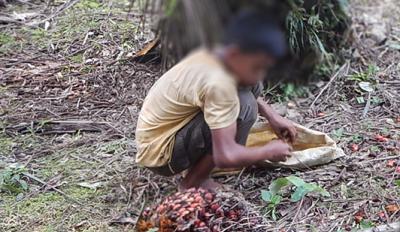
Publication Date:
June 8, 2016
Conflict Palm Oil is palm oil that has been produced illegally or under conditions associated with labor or human rights violations, ongoing destruction of rainforests, or expansion on carbon-rich peatlands. The numerous issues with Conflict Palm Oil have been increasingly spotlighted, which has spurred many companies throughout the palm oil supply chain to adopt responsible palm oil policies. These policies outline commitments to produce and source palm oil that is not associated with the violation of workers’ rights, deforestation, expansion on carbon-rich peatlands, or the violation of human rights. As the largest globally distributed snack food company in the world, and a major purchaser of palm oil, PepsiCo is one such company to recently adopt a policy.
Unfortunately PepsiCo’s policy contains a loophole: it does not require its joint venture partner, Indofood — one of the largest palm oil growers in the world, the biggest food company in Indonesia, and the sole maker of PepsiCo products in Indonesia — to meet the same requirements for the palm oil it uses to make PepsiCo’s products. This omission means that the palm oil produced and sourced by Indofood to make PepsiCo-branded products in Indonesia is not required to meet the same environmental and social safeguards as PepsiCo products made directly by PepsiCo.
To understand the impact of this exclusion on palm oil workers, a team of researchers investigated the living and working conditions of laborers on two palm oil plantations that are owned and operated by PepsiCo’s joint venture partner Indofood, under its subsidiary plantation company PT PP London Sumatra Tbk‘s (Lonsum), located on the island of Sumatra in Indonesia. Investigations were conducted in September and October 2015 by a team of researchers through one-on-one interviews with workers; examination of workers’ documents such as pay slips, letters and work agreements; and on-site observation of workers performing their work duties, workers’ living conditions and the plantations’ amenities. Forty-one Indofood workers were individually interviewed for this investigation.
Key findings include:
-
Indofood categorized many of its long-time workers as temporary and placed them at heightened risk through precarious employment practices.
-
Indofood paid its workers unethically low wages.
-
Children worked on Indofood plantations.
-
Indofood did not provide adequate health and safety protection for many workers, and casual maintenance workers were exposed to highly hazardous pesticides.
-
Indofood undermined Freedom of Association.
PepsiCo and Indofood may not be fully aware of the practices outlined in this report, nor condone them. Nevertheless, these findings show that the rights of workers on the plantations of Indofood’s subsidiary are not being upheld in accordance with international labor norms, the UN “Protect, Respect and Remedy” Framework for Business and Human Rights, or PepsiCo’s palm oil procurement policy. Despite any lack of previous knowledge, both Indofood and PepsiCo are responsible for ensuring human rights are respected in their direct business operations as well as in the operations of their business partners and suppliers as outlined in the UN Guiding Principles on Business and Human Rights.
To begin, PepsiCo must fix the loophole in its current policy by requiring that Indofood comply with the all principles of its policy. PepsiCo and Indofood must work rapidly to investigate and address the labor violations outlined in this report as well as other outstanding Conflict Palm Oil cases.8 Both companies
should adopt and implement truly responsible palm oil policies that require the production and sourcing of palm oil in accordance with the Free and Fair Labor in Palm Oil Production: Principles and Implementation Guidance (Fair Labor Principles). The Fair Labor Principles, which were developed by a broad coalition of civil society organizations from Indonesia, Malaysia, Liberia, the United States and Europe, provide a common point of reference for what constitutes free and fair labor in palm oil production, based on the International Labor Organization Core Conventions and the UN Guiding Principles on Business and Human Rights.

